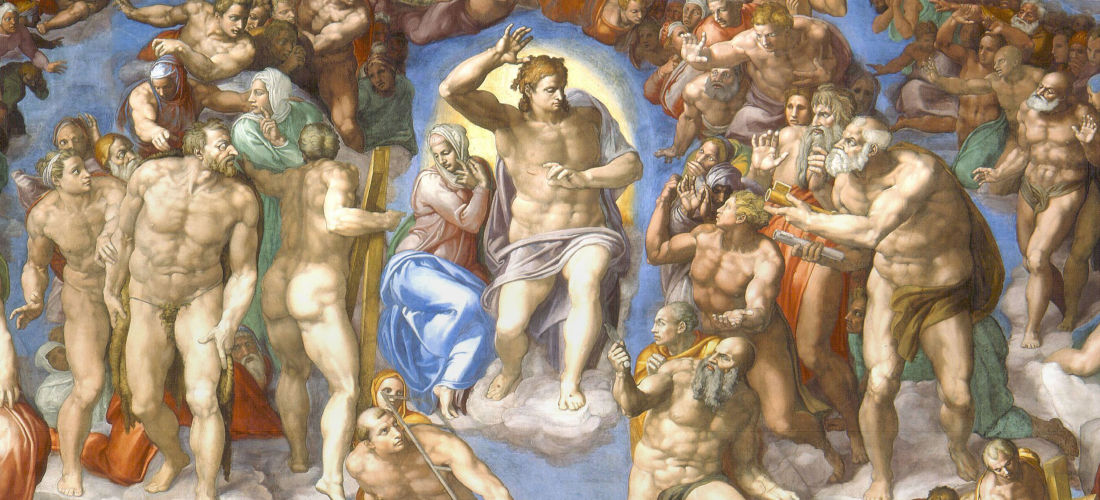Slavery – a lesson in wrong constructs and scriptural justifications
Kenneth E. Hagin in an interview said, “If you cannot love, you cannot get your faith to work”. We have blockages that prevent us from believing in God and loving others. It isn’t easy to recognise these things, but as they are chiseled away, we see more clearly such things as real. A discussion in Slavery is pertinent. At its core is a reflection of our relationship with God. We will see how men who were not in such relationship were able to influence and teach that slavery was justified. If relationship was evidenced it would have been impossible to justify slavery. Our actions reflect the fruits of the Holy Spirit or the grieving of the Lord.
There is commonality with various issues as we see historically with Slavery. I have seen slavery up front. The experience was profound. If you do not see it first hand, how can you understand the degradation of humanity? This is why we need those around us who see and pastor and teach appropriately, to keep the Church from being removed from its lamp stand and changed into something else.
We witness high emotion on certain issues in the Church. They are controversial, explosive, the kind that people do public walk-outs in resolute anger. It is like saying “DO NOT OFFEND ME”, which sometimes means “Don’t expose me”. The Gospel causes division and offense as well, so we should be more aware of how we react.
The outcome of this behaviour often is unresolved with loss to those who do this.
Readiness and Clarity for Truth
Can the Church change and be ready for truth?
I once had a dream where an angel appeared as a humble human to the Apostle Paul. He instructed Paul not to go to a certain church saying the people there were angry.
We know in Revelations of the seven kinds of Churches and dominant behaviours Jesus warned of. These things are not hidden from the Lord.
The implication of my dream was that Paul’s message as inspired by the Lord could not be given as it could not be received while that anger existed. The key here is not the particular problems in the church, but the nature of anger.
We do know Paul did not visit the Corinthians until a form of immorality was rejected by the Church. The Church was clearly able to understand without any confusion why it was immoral. When the Jerusalem Apostles received guidance from the Holy Spirit, it was reassuring and clear, even with realistic actions that could be taken, all obvious to Paul as well. If we start to get into murky waters outside clarity like these examples, we should not be quick to enforce our views.
Awareness of Underlying Characteristics
There are different issues Churches have had across centuries of history that show commonality with the same characteristics.
If people are aware, when they will see the same characteristics, they may turn away from such participation as they look to a higher priority. That is, in this example, do I see the anger and refuse to be taken in by it, or do I see the detailed issue as my choice? A simple example, Jesus looks to the heart of the person.
For the purposes of this article, slavery and white supremacy is cited as the actual issue. I will give some outlines about why slavery was vehemently justified so we can at least keep away from such forms of error in a better way. As an example of our reactions, if we are told Christians must not go to war, does something rise up within us in almost fierce resolute conviction and objection, or do we review principles, see what we believe and why, and of course pray. We will not have unanimity with everyone, including pastors. This is a fantasy to think so.
If we learn from the lessons of slavery and the Church, we can see where the same attitudes harm the Church and society, rather than the issue people brutally defend, as was the case with slavery. We can learn what people did to defend slavery with misuse of scripture and not forget. This represents an adjustment I believe that only a limited number of people understand or respond to. The problem is that even if we say we understand the fallibility of slavery, when faced with other issues indicating the same types of typical responses, do we ignore this as we thought it only applied to slavery and not something else. We all do this.
There are courses for workers and professionals called “situational awareness” that were formalised for military training on aircraft a long time ago, eventually being commercialised for train drivers and such. In this formalisation process, groups in Europe developed graphs to apparently prove the effectiveness of their own courses with apparent statistics. It was even supposed to make school students have an advantage. Ok, it made some bucks. The problem is that awareness is not taught, but something one chooses to learn and apply ongoing. People taking such courses will be just as unaware as they always have been, except perhaps in certain specific tasks. For instance, if I go onto a construction site and there is an electrical risk, or potential hazard, I am more likely to recognise and mitigate. Hence, it is a limited level of awareness and application to physical surroundings. As an example, you do not let anyone pressure you to go on a cherry picker unless you have formal qualifications. Someone who drives a car may think they are aware of surroundings but still not see ahead as to what traffic is really doing.
None of the above situations relate to being aware of emotions or critical thinking – i.e. what logic or bias we use, where something is actually questionable or in error.
It is possible a person who has social rejection, such as being outcast verbally their whole life from obesity, then after surgery and weight loss can still reject others just as readily who do not meet their requirements. The lesson has not been learnt in a more global context. Tragically we see even worse, such as a one tortured in war who knows the impact of torture, then choosing to torture others at opportunity. There was no desire to learn and change.
Churches always have problems, yet everyone needs to be with a Church that is pastored, and further, with a spiritual family. If these concepts are strange, or not understood, I state them so one may learn more about it over time.
Church Pastoring
Of course, if a Church is pastored in corruption or serious error, my current observation is that the congregation will have negative consequences. We see this in the extreme with cults, but not all such behaviour is as obvious as a cult. It can be more subtle, spiritual abuse or suppression, etc. One may examine the consequences of following people who are in doctrinal or rules-based error, but regardless, we observe in human behaviour the willingness of many not to test or question, but to follow. This is a very good reason to have a Godly pastor and teacher.
If a Church is based on the proposition that doctrine does not matter, if everyone can do their own thing, what happens when behind the scenes people are then able to attend demonic groups for special knowledge and experiences, fortune telling and the like? The church is fallen and attendance for a spiritual person should only be by the Lord’s confirmation for a time. What happens if a church minister is alcoholic or has a strong past in drunkenness, or say, the brutality of prison experiences, how can the Church be led if the person’s default position is anger, authoritarianism, harshness?
Those excluded from the Church due to bad experiences, are held by the Lord as together they find direction which may lead them back to a Church, despite the issues involved. This can even take decades.
Where pastoring is not strong, which may not be anyone’s personal fault, the Church is open to disruption and dispersal. I sadly saw this in New Zealand in the 1980’s. An entire grouping of Christians across co-related geographic locations were split due to the arrival of an outsider and his actions. People bought it, despite demonic activity such as dogs howling in human-like voices, electricity blacking out, light bulbs exploding with smoke and lots more I have no idea about behind the scenes. The established Church knew and stated there was nothing it could do. We had to watch things fall apart. It was a bit like watching the doors of our Church close due to Covid-19. Satan prowls like a lion for its prey.
So, is it any wonder that we observe human behaviour in various circumstances behaving the same way, such as accepting slavery. There is nothing new under the sun, so we need to look at what underlies these issues. Pastoring has a responsibility to help congregations see what Jesus sees.
Examples of Wrong Thinking
Slavery, Sabbath observance, Prohibition, the lowly and enforced position of women, issues like divorce and so on, have been problematic to Christians ever since we imagine.
We find absurd thinking such as in the 1300’s with Thomas Aquinas (and St Augustine of Hippo – 300s). Thomas Aquinas towards the end of his life saw Jesus. After that he considered all he wrote as garbage. St Augustine denounced the existence of healing but two weeks before his passing away, saw people being healed in France.
Man tries to put God in a box – how he works, and therefore what we must do. One such view was that God gave man intellect and reason, and therefore he must use what he sees in nature to define who God is with the corresponding intellect. This had all sorts of offshoots.
One result was that those born as women were inferior prior to birth, hence God did not let them be born as men. “Sins” were defined and categorised with tax payments to the Church to obtain forgiveness depending on the tier or level of sin. Assertions about Adam and Eve were made about nature, even though no one knew anything about that time of origin.
All these pronouncements had to be contained within a body of “knowledge” using defined constructs, terminology, process – all of which was not privy to the “dumber” public. The same applied to Slavery. People in “key” positions defended slavery on false premises despite saying God says otherwise, as does scripture.
Certain views inherently carried inbuilt conflicts. The public definitions of every possible “sin” still caused confusion and no resolve at times, which if anything, showing underlying errant thinking and theological methodologies – even hypocrisy. Therefore, in public at least, were the official positions of sin. Hypocrisy is poison by stealth.
The refusal to accept demands as law, has meant people have been condemned, kicked out of the Church, told they are under God’s wrath, they are not only in sin, but sin itself. (And much more.)
And so we come to what was used to justify slavery…
The Patterns of Slavery, Segregation and Subordination
American Social Beliefs of the Time
-
-
- Slaves have no full rights of membership to society.
- Slavery in other countries may not be due to colour of skin. In America it was by virtue of being “black”.
- Scripture was read and interpreted unremittingly and negatively.
- Virtually everyone in general culture pervasively believed in slavery, including devout, intelligent Christians.
- Scriptures were read out of context.
- Scriptures were claimed to have been read literally.
- Such readings of scriptures when applied had tragic consequences for individuals/slaves.
- Slavery is oppression.
- Slavery is based on justifications to defend it.
- The Bible records God’s judgement against the sin of the people of Africa.
- African descent had inferior moral character.
- African decent therefore could not attain to the level of full white civilization.
- African descent willfully chose sin, (their nature) often with sexually promiscuous and threatening acts deserving punishment.
-
Slavery Justified by Misuse of the Bible
- From Genesis 9:20-26, Ham’s in his sin to Noah, is taken as a man from the black race ( however, no where is this in the bible). Ham’s curse justifies slavery, but not applicable to Canaan. Therefore the white race is exempt from the curse, and Ham’s curse is applied to all descendants who are dark-skinned.
- Ham’s sin was not explained (some now may say it was Ham having a child with Noah’s wife), but Jewish Rabbi interpretation was passed down through all ages of what constituted evil, and additionally projected or assigned to any person considered as “other” than the taught norm.
- Hence, black slaves were considered in sin by nature, under the curse, and sexually suspect.
- Because the person is enslaved by sin, slavery is justified (Augustine in the “City of God” – “the condition of slavery is the result of sin.”) This justifies why the word “slavery” is not in Scripture, as it is a result of inherent sin in black people via Ham.
- As it is sin, it is not by nature.
After the American Civil War, the Presbyterian Church was absolutely confident that Africans were cursed, deserving slavery and everyone agreed wholeheartedly.
- Theologians with qualifications and hence acceptance of authority, declared slavery was not sinful, it was sanctioned by God, the Church had no right to interfere with a civil matter and that abolitionism was wicked and ruinous. Therefore the issue should not be part of the Church discussion, but civil.
- Atheists (hence communists etc.) oppose slavery, therefore it is right for Christians to support it. This battle represents the progress of humanity itself.
- James Henley Thornwell published a pamphlet that was accepted unanimously by the Presbyterian Church in the Confederate States of America.
- Thornwell’s literalism was in contrast to other Reformist views.
- Thornwell stated a natural ordering in society based on country and race was natural, biblical, essential all supporting monarchy and aristocracy and existence of poverty.
- Therefore, human rights were subordinate to the hierarchical system as instituted by God. By nature, Africans were assigned by God as inferior and to the status of slaves.
- Slavery fulfills the person’s subsequent abilities and duties, where rights to other men are denied. Liberty, truth and virtue belong to those fit to posses them in God’s Providential scheme as assigned by God to each person – a holy decree.
- Africans were in a state of degradation in bondage even though they co-exist with whites. This was “normal”.
- Considering their life in Africa, they have been given gracious Providence being brought to the shores of America, being taken out of that land of barbarism and sin.
Thornwell stated the above is the written word of God, thereby his exposition of common sense agreed with scripture.
- He stated Scriptures do not directly condemn slavery and it is not new, having existed in all dispensations, including the covenant of Grace for the Church.
- Scripture sees slavery as lawful and cannot go against itself, so it is love and justice to have slavery. It is a lawful relation.
- Slavery is universally natural and is therefore Divine. All peoples, philosophers, statesmen and nations have accepted it.
All of these statements ignored what Jesus said, saying slavery or anything else not explicitly denied by Scripture can be done and otherwise nothing should be done to change any such issues. These views placed themselves above the Gospel.
These views were considered the spirituality of the church.
While people had conscience, segregation had to be left to the rules of the State.
The human race would revert if the power of southern white men did not give the benevolence that they did to inferior races.
References from work of Professor Jack Rogers.
Various theological methods to define and summarise the Bible have been used for centuries, where dominance of particular methods have been shown to be passed down via key figures and educational institutions. For example, the Scottish Common Sense method which has been fraught with errors. One aspect of this – what humankind has always done, such as slavery, is what God wants, as man has always done it.
Where is the focus on what Jesus taught? Without the focus on Jesus and the Holy Spirit, we get callous and unchecked behaviours, typically saying the world will be ruined – such as by removing slavery.
My experience is that people tend to project problems somewhere, creating labels, saying evil is the cause as they do not understand the problem. Hence, the demonisation of people who therefore are in sin, who are diseased. Households with African American slaves would never sit on a toilet seat used by a slave. This has been used to maintain arrogant supremacy. We have heard in the past how women were the first to sin, they must bear the curse, not be heard, they can never attain to the higher morality and intellect of a white male as given by God – these kinds of variations. We have seen mankind’s quest to find eternal life by his own means, to formulate a superior “Arian” or hybrid race, and to remove what is of God, including the Jewish Nation, which will never happen, or Christians as they do not wish to hear about the one true God opposing man’s own constructs. We know this never works in the long run because God exists whether people like it or not.
There are very clear reasons why the Apostle Paul says women must cover their heads and sit separately from men. In those times they did not know anything about the 20th-21st century. It was a given that women’s hair was absolutely sexual and had to be private. We won’t go into these details, but we have a context based on the world view and culture, hence a common decency of the times. This “literal” interpretation of scripture is used by some groups even today. The Scottish Common Sense method says we as humans of course can understand scripture the way we read it. May we learn from this.
Here is a ChatGPT summary of the main points and reasons why the American Presbyterian Church once accepted and justified slavery, particularly in the 18th and 19th centuries:




